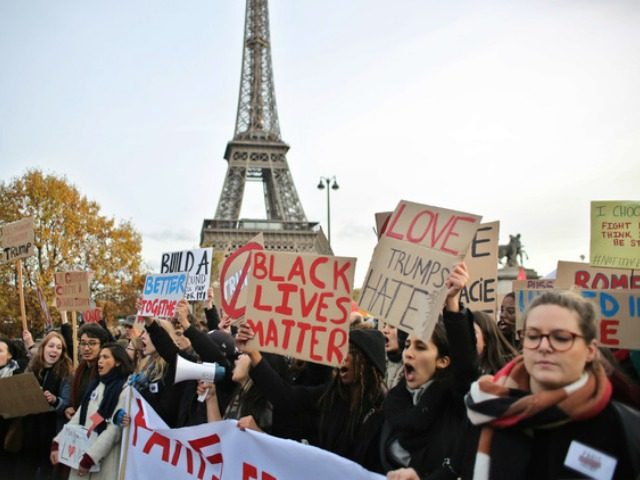PARIS (AP) — French conservatives are voting in a nationwide primary to choose their nominee for next year’s presidential election, after a campaign marked by concerns about immigration and Islamic extremism.
Seven candidates are competing Sunday in the first round of the primary. A runoff will be held between the top two vote-getters a week later.
The three leading candidates are former president Nicolas Sarkozy and former prime ministers Francois Fillon and Alain Juppe.
The candidates have been keeping a close eye on far-right candidate Marine Le Pen, whose criticism of immigration and Muslim practices resonates with many voters.
It’s the first such primary organized by France’s conservatives, making the outcome hard to predict. Candidates previously were designated internally.
Results from the first-round voting are expected late Sunday.
French conservatives were voting in a nationwide primary Sunday to choose their nominee for next year’s presidential election, after a campaign marked by concerns about immigration and Islamic extremism — and overshadowed by the rise of a populist leader emboldened by Donald Trump’s election.
Seven candidates are competing in the first round of the primary. A runoff will be held between the top two vote-getters a week later. The three leading candidates are former president Nicolas Sarkozy, 61, and former prime ministers Francois Fillon, 62, and Alain Juppe, 72.
As a new wave of populism sweeps governments in the West, the winner of the conservative primary is expected to have strong chances of winning the April-May presidential election.
The campaign has focused on a surge in immigration — a hotly debated issue throughout Europe — and security concerns following recent attacks by Islamic extremists.
The conservative candidates have been watching the political rise of far-right leader Marine Le Pen, who is hoping anti-immigrant, anti-Muslim and anti-establishment sentiment can propel her to the presidency. Le Pen, the official candidate of her National Front party, celebrated U.S. President-elect Donald Trump’s victory as a sign of hope for her campaign.
Sarkozy hopes to pull votes from people attracted to Le Pen. He has called for stricter immigration rules across Europe, and vowed to ban Muslim women from wearing headscarves at universities and possibly elsewhere. Hijabs already are banned in French schools, like all other visible signs of religion in strictly secular France.
Fillon — who has enjoyed a recent boost in popularity thanks to his image of authority and seriousness compared to Sarkozy’s more outspoken, brazen demeanor — pledges to organize a referendum on a quota system for immigrants.
In contrast, Juppe is advocating a more peaceful vision of French society, based on respect for religious freedom and ethnic diversity.
On the economic front, all candidates want to lower taxes —especially on businesses— and reduce the number of public servants. They also all agree to reverse the 35-hour workweek, a measure applied to all French employees since 2000.
This is the first time French conservatives are holding a primary, making outcomes hard to predict. Candidates previously were designated via an internal procedure.
The Socialist Party organized France’s first-ever primary in 2011, a vote won by Francois Hollande, who went on to win the French presidency the following year.
Hollande, whose popularity has plunged amid economic stagnation and extremist violence, hasn’t said whether he will seek re-election.
All French citizens over 18 — whether they are members of the conservatives’ party or not— can vote in the primary if they pay 2 euros in organization fees and sign a pledge stating they “share the republican values of the right and the center” by signing a document.
The expected number of voters in Sunday’s election varies from 2 to 4 million people, out of over 44 million citizens registered on electoral rolls. They can vote in 10,228 polling stations open from 8 a.m. to 7 p.m. across the country.
Results are expected late on Sunday.

COMMENTS
Please let us know if you're having issues with commenting.